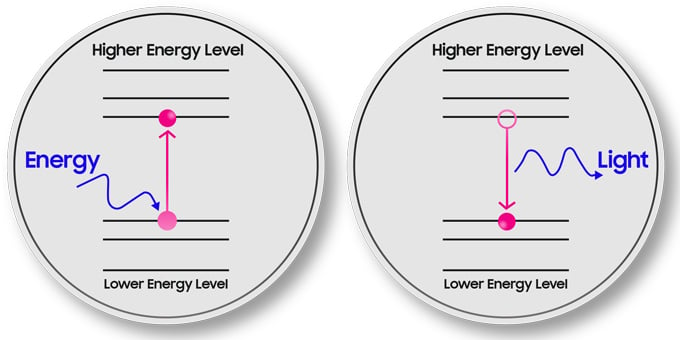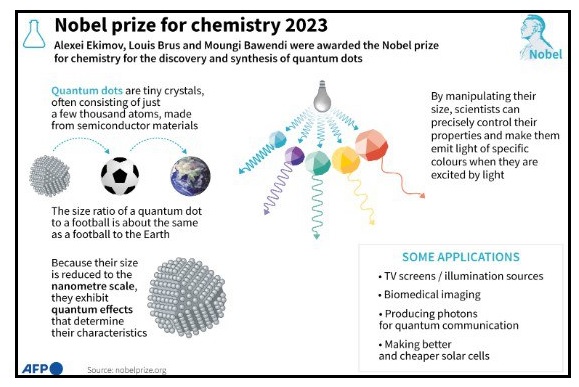900 319 0030
enquiry@shankarias.in
Nobel Prize for Chemistry 2023 has been awarded to Alexei I. Ekimov, Louis E. Brus, and Moungi G. Bawendi for the discovery and synthesis of quantum dots.


References